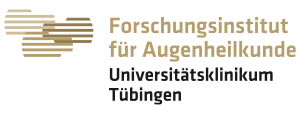During a talk at the Ophthalmic Research Symposium, Prof To presented a talk entitled “Myopic defocus for myopia control -from lab to clinic”, where he described the efforts to understand the temporal and spatial integration of optical defocus in different animal models of myopia. The background of Prof. To´s research is the increasing prevalence of myopia, especially in South-East Asia, where up to 90% of students are currently myopes, and the prevalence of high myopia (above -6D) is expected to increase from currently 5% to 15% - 20% in the next decade. There are several attempts that can be used to reduce the progression of myopia, including pharmaceutical, optical and environmental interventions.
Basic research has indicated the eye of an animal can respond to the sing and power of lens-induced defocus, conditions that are called lens-induced myopia (when a negative lens is used to induce defocus), or lens-induced hyperopia (when a plus lens is put in front of the eyes and the eye develops a hyperopic refractive error, when lenses are taken off). Also the used of diffusers can result in a myopic refractive error, when vision is deprived by the use of occluders. Later research has nicely demonstrated the imposition of dual focus signals (by using positive and negative spherical defocus, e.g. by the use of dual-focus contact lenses) can alter the refractive development, whereas difference are observed depending on the ratio between the plus and negative defocus. First results in the chicken model of myopia have demonstrated that a ratio between plus and negative defocus of 50:50 shows the least development of myopia, when compared to ratios of for example 33:67, or 25:75.
These results were later proven in different animals models, for example in three shews. Prof. To and his team at the Polytech University Hong Kong have translated this knowledge into products. The first lens, the team developed, was the so-called Defocus-Incorporated-Contac- Lens (DISC), where a subsequent clinical trial has shown a positive effect on the retardation of myopia in the intervention group compared to the control group. Additionally, the results revealed that the protective effect against the progression was increasing with increasing hours of wear of the contact lens.
In 2017, the same researchers presented first year clinical data, where the influence of “Defocus Incorporated Multiple Segments” (DIMS) spectacle lenses on the progression of myopia in children was investigated. Also with this special type of spectacles, a reduction in the progression of myopia was demonstrated, while the efficacy was constant also for the second and third year of the clinical trial. Currently, the team is running a real life study in HongKong to collect data on the progression of 400 myopic children, who are wearing this lens.
We thank Prof. To for this insightful presentation on how to translate basic research into clinical trials to test the efficacy of products.
Summary by Arne Ohlendorf of the ZEISS Vision Science Lab - the Ophthalmic Research Symposium January Edition was hosted by Prof. Siegfried Wahl and Prof. Frank Schaeffel
Professor Chi-ho To graduated in Optometry at the Hong Kong Polytechnic in 1987. He obtained his PhD degree from the University of Wales, College of Optometry in Cardiff, the United Kingdom. In 1993, he returned to the Hong Kong Polytechnic working as a Lecturer. In 2005, Prof. To was promoted to Professor. Professor To has had a long-standing research interest in aqueous humor physiology and glaucoma, myopia basic mechanism and treatment, and retinal degenerations.He is currently Chair Professor of Experimental Optometry, Henry G. Leong Professor in Elderly Vision Health at the School of Optometry, The Hong Kong Polytechnic University.


